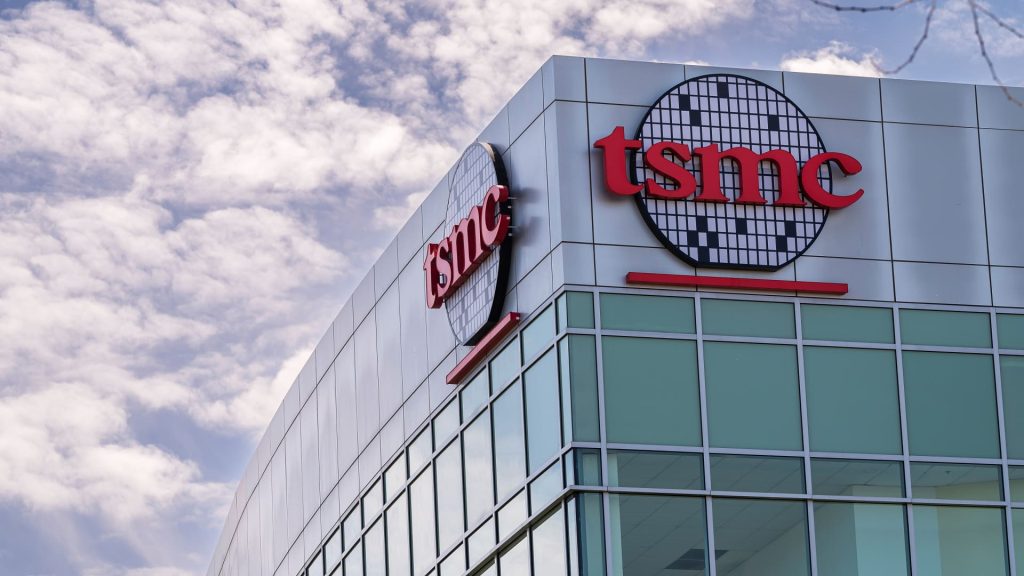Taiwan Semiconductor Manufacturing Company on Thursday beat revenue and profit expectations in the second quarter, as demand for advanced chips used in AI applications continue to surge.
Here are TSMC’s second-quarter results versus LSEG consensus estimates:
- Revenue: 673.51 billion New Taiwan dollars ($20.82 billion), vs. NT$657.58 billion expected
- Net income: NT$247.85 billion, vs. NT$238.8 billion LSEG SmartEstimate weighted toward forecasts from analysts who are more consistently accurate
TSMC reported net revenue rose 40.1% from a year ago to NT$673.51 billion, while net income increased 36.3% from a year ago to NT$247.85 billion. The firm guided second-quarter revenue to be between $19.6 billion and $20.4 billion.
Chairman and CEO C.C. Wei in an earnings call on Thursday said business in the second quarter was supported by strong demand for its industry-leading 3-nanometer and 5-nanometer technologies, though it was offset by continuous smartphone seasonality.
Explosive demand for AI has stretched chip supplies. TSMC is the world’s main producer of advanced chips found in everything from smartphones to AI applications, though rivals such as Samsung and Intel have been trying to challenge its dominance. It counts Apple and Nvidia among its clientele.
“I also try to reach the supply and demand balance, but I cannot. Today, the demand is so high I had to work very hard to meet customer demand,” Wei told analysts. “I hope sometime in 2025 or 2026, I can reach the balance.”
For the third quarter, the business is expected to be supported by strong smartphone and AI-related demand, said Wei, adding that they continue to expect 2024 to be “a strong growth year for TSMC.”
TSMC projects third-quarter revenue between $22.4 billion and $23.2 billion. This compares to $17.3 billion in revenue posted in the same period a year ago.
Big AI demand
Surging demand for advanced chips used in AI applications has boosted TSMC’s Taiwan-listed shares by nearly 70% so far this year.
The chip giant currently produces 3-nanometer chips and plans to commence mass production of 2-nanometer chips in 2025. Typically, a smaller nanometer size yields more powerful and efficient chips.
Development of 2-nanometer technology is “progressing well” and is on track for volume production in 2025, said TSMC.
“The demand for generative AI is surging in the cloud and at the edge. TSMC’s N3 process boasts good yield rates and well-managed production lines. The market is well-funded, and regional political factors drive increased demand for advanced processes,” Brady Wang, associate director of Counterpoint Research, said on Friday ahead of the results.
Wang said the capacity of the 3-nanometer process is expected to more than double in 2024 compared to the previous year.
Needham analysts on Monday said they expect TSMC to raise its 2024 revenue growth target, reiterating a “buy” rating and raising the price target to $210 from $168 on the chip giant’s U.S.-listed shares.
“We expect TSMC to raise its 2024 revenue growth outlook from ‘low- to mid-20s’ to ‘mid- to high-20s’ but maintain its 2024 [capital expenditures] target at $30 billion on the upcoming earnings call,” Needham said in a note.
TSMC held 62% of global foundry market share in the first quarter, up from 59% in the same period a year ago, according to Counterpoint Research data.
This is breaking news. Please check back for updates.
Read the full article here
